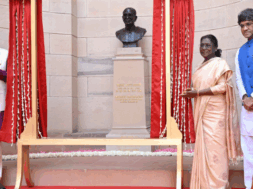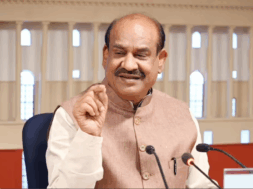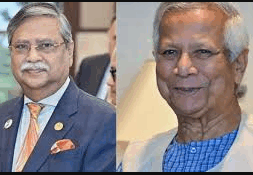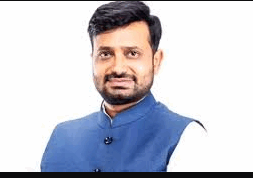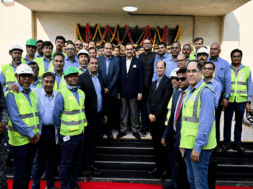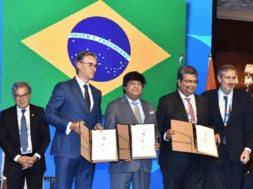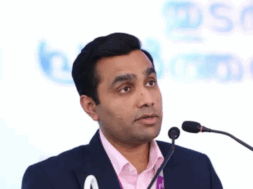
Union Cabinet Approves “One Nation, One Election” Proposal, Opposition Says “Impractical”
Manas Dasgupta
NEW DELHI, Sept 18: The Union Cabinet on Wednesday unanimously approved the Prime Minister Narendra Modi’s dream project “one nation, one election” and accepted the report submitted by the committee of the former president Ram Nath Kovind which proposes simultaneous elections to the Lok Sabha and all the state Assemblies with urban body and panchayat polls to be held within the next 100 days.
Ram Nath Kovind-led high-level panel had submitted the report in March ahead of the announcement of the Lok Sabha elections. Placing the report before the Cabinet was a part of the union law ministry’s 100-day agenda.
“There is unanimous opinion that simultaneous polls should be held,” the panel, which included Home Minister Amit Shah, Law Minister Arjun Ram Meghwal, as its members, had said. The panel also outlined provisions for a ‘unity government’ in cases of an indefinite result or a no-confidence motion; it had been tasked with recommending such solutions.
Information and Broadcasting Minister Ashwini Vaishnaw briefing media on the cabinet decision said the Ram Nath Kovind-led panel’s report on simultaneous polls found widespread support and that the Union Cabinet approved its proposal unanimously. The high-level committee had recommended simultaneous elections for the Lok Sabha and State Assemblies as the first step followed by synchronised local body polls within 100 days. The panel had also proposed setting up of an ‘Implementation Group’ to look into the execution of the recommendations made by the committee.
Mr Vaishnaw said the ‘one nation, one election’ system would be implemented in two phases, with a single list to identify eligible voters for all polls. “We will start the discussion (on implementation) pan-India,” he told reporters, underlining that 80 per cent of respondents supported the ‘one nation, one election’ push during initial talks. There is “widespread support” for this system, he said.
The ‘one nation, one election’ proposal was part of the ruling BJP’s manifesto for the 2019 and 2024 general elections, but has drawn heavy criticism from the opposition, who have red-flagged concerns over changes to the Constitution and practical challenges. The BJP had been insisted that “one nation, one election” would be put into practice in the current term of the Modi.03 government itself.
The experts, however, feel that it was more of a rhetorical exercise than a practical move as making this a reality would require at least six constitutional amendments needing two-thirds support in both the Houses of Parliament. The present BJP-led NDA government at the centre has a simple majority in both Houses, but is short of that two-thirds mark – by 52 votes in the Rajya Sabha and 72 in the Lok Sabha. After this, it has to be ratified by all states and Union Territories. With most of the opposition parties did not approve the move in the past, the ruling alliance is unlikely to succeed to garner necessary support in Parliament and the state assemblies to make simultaneous elections a reality.
Holding simultaneous poll will “transform the electoral process (and) governance” and “optimise scarce resources,” the high-profile panel had said, noting 32 parties and prominent judicial figures, including former Supreme Court Chief Justices and High Court judges, had backed this measure.
Commenting on the cabinet decision, the Congress president Mallikarjun Kharge said ‘one nation, one election’ was not practical and alleged that the BJP comes up with such things to divert attention from real issues when elections approach. Asked about the issue, Mr Kharge said at a press conference In New Delhi, “It is not practical. It will not work. When elections come, and they are not getting any issues to raise, then they divert attention from real issues.”
Simultaneous polls will help save resources, spur development and social cohesion, deepen “foundations of democratic rubric” and help realise the aspirations of “India, that is Bharat,” the panel had said. The panel also recommended the preparation of a common electoral roll and voter ID cards by the Election Commission of India (ECI) in consultation with state election authorities.
At present, the ECI is responsible for the Lok Sabha and Assembly polls, while the local body polls for municipalities and panchayats are managed by State Election Commissions. The panel recommended as many as 18 constitutional amendments, most of which will not need ratification by State Assemblies. However, these would require certain Constitution amendment Bills that would need to be passed by Parliament.
Some proposed changes regarding the single electoral roll and single voter ID card would need ratification by at least half of the States. Separately, the Law Commission is also likely to come up soon with its own report on simultaneous polls, of which Prime Minister Narendra Modi has been a strong votary.
Sources said the Law Commission is likely to recommend holding simultaneous polls for all three tiers of the government — the Lok Sabha, state Assemblies and local bodies like municipalities and panchayats — starting with 2029 and a provision for unity government in cases like hung house.
The Congress leader and former union minister P. Chidambaram, however, said the “one nation, one election” programme was not possible under the present Constitution and required at least five Constitutional amendments. He said the Modi government did not have the requisite numbers in the Parliament to get the constitutional amendments through.
“’One nation, one election’ is not possible under the present Constitution. It requires at least five constitutional amendments.” “Mr Modi does not have the majority to put those constitutional amendments in either in the Lok Sabha or Rajya Sabha,” the former Union minister said. He asserted that there were greater constitutional obstacles to ‘one nation, one election’. “It is not possible. The INDIA bloc is totally opposed to ‘One Nation, One Election.”
At least 15 parties including the Congress, have opposed the ‘one nation, one election’ push. The Congress has said this proposal was “not pragmatic and practical.” Mr Kharge, while releasing the party’s manifesto for next month’s Haryana election, called it “an attempt to divert the attention of the public.” “This is not going to succeed… the people will not accept it.”
Other opposition parties, specifically those in the Congress-led INDIA bloc, including the Samajwadi Party, the Trinamool Congress, and the Aam Aadmi Party have also been critical of this measure.
In March, while releasing its manifesto for the Lok Sabha election, the DMK had vowed to scrap the proposal if the INDIA bloc were to win the election. Two months earlier Trinamool leader and Bengal Chief Minister Mamata Banerjee called the proposal “a design to subvert the basic structure of the Constitution” and “(allow) autocracy (in) a democratic garb…”
Also, regional parties had pointed out concerns that limited resources could hamper them in highlighting local issues to voters, particularly in the face of frenzy over national issues in a Lok Sabha election. Another red flag was the cost of procuring EVMs, or electronic voting machines. This, the poll panel had said, would be approximately ₹ 10,000 crore every 15 years.
At present, only a few states vote for a new government at the same time as the country selects a new union administration. These few are Andhra Pradesh, Sikkim, and Odisha, all of which voted at the same time as the April-June Lok Sabha election. Haryana votes next month, with Jharkhand and Maharashtra also voting this year. The Union Territory of Jammu and Kashmir is holding its first Assembly election in a decade.
The rest follow a non-synced five-year cycle; Karnataka, Madhya Pradesh, Rajasthan, and Telangana, for example, were among those voting at different times last year. And this has been flagged by the opposition, which has warned against cutting short the terms of the state’s respective governments. Of these four, the BJP rules Madhya Pradesh and Rajasthan. The Congress rules Karnataka and Telangana, both of which voted last year and are not scheduled to vote again till 2028.
As many as 47 political parties had provided feedback to the Kovind panel on the proposal and while 32 said they were in favour of it, 15 opposed it. The 18,626-page report was submitted in March after extensive consultations with stakeholders, experts and research over 191 days since the committee was constituted on September 2, 2023.
Experts and parties that have supported simultaneous elections have said that it can lead to higher economic growth as it would provide policy stability and allow businesses to take decisions without fear of changes that could upset their roadmap. In a similar vein, it would also, they say, avoid disruption of supply chains and production cycles which happen because of migrant workers remaining absent to cast their votes.
Opponents argue that there is a very real risk of regional issues getting overshadowed by national ones when the entire country votes at once. It has already been seen that voters pick different parties for Lok Sabha and Assembly elections and still different ones for municipal polls. Experts attribute this to problems in the region, as well as good work done by the party in power the state or local body, being in focus when Assembly or local body elections are held.
India’s federal structure gives a set of powers to the Centre and the states and those who argue against holding simultaneous polls say they can erode the importance of state governments.
State elections are also often seen as referendums on the policies of the party at the Centre and when they happen at different times, voters can hold the ruling party accountable by signalling their dissatisfaction with it. Elections being held together in a gap of five years, some argue, deprives voters of that opportunity and there is also a risk of elected representatives becoming complacent.
Simultaneous elections were held four times, in 1951-52, 1957, 1962 and 1967 but could not continue because of the premature dissolution of some state Assemblies in 1968 and 1969. The Lok Sabha was also dissolved prematurely in 1970 and fresh elections were held in 1971. While proponents cite the initial simultaneous elections as proof that they can work, opponents argue that India had fewer states and a smaller population at the time.

